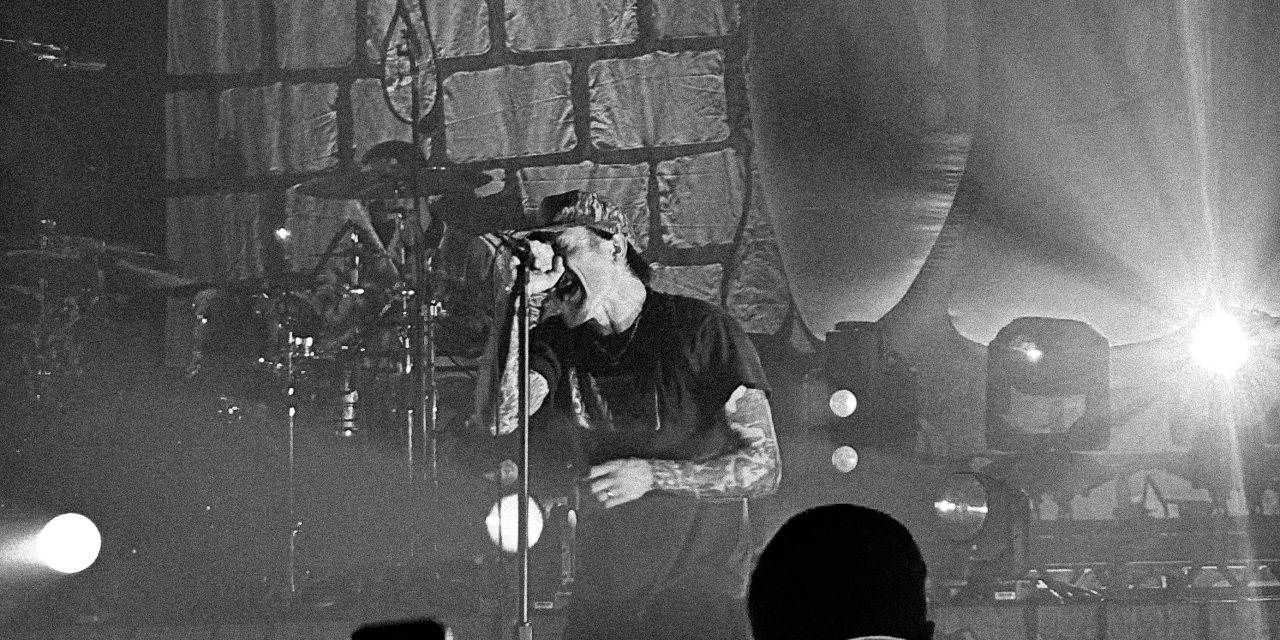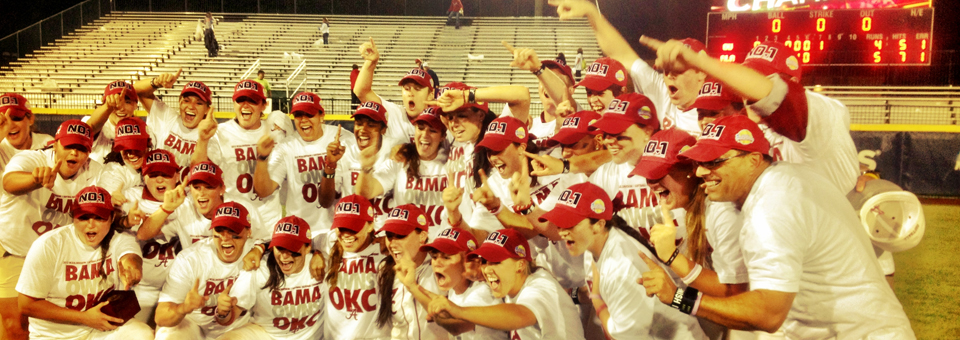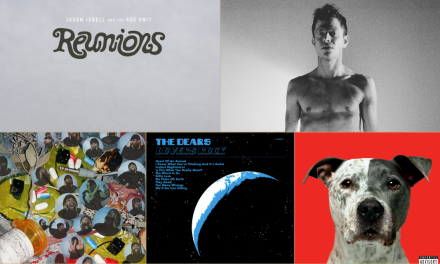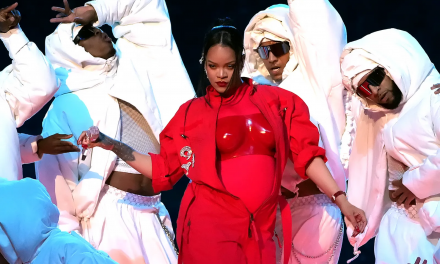Punk is a reactive, churning genre. The name ‘punk’ itself coopts the mocking insult that those who founded the genre in the 60s and 70s were called, seeking to accept that they are punks in that they are not the mainstream. For me, punk music is symbolic of resistance, anti-government critique, and engaging with the world through a light of hope rather than pessimism. On October 9th of this year, I, alongside a few of my friends, journeyed far to Huntsville, Alabama to see Neck Deep live.
I am not the traditional Neck Deep fan. While I love punk, I traditionally think of punk-pop as the watered-down version of the aggressive passion that draws me in to its parent genre. I love Rage Against the Machine, but I hate Machine Gun Kelly. Despite this, I do like Neck Deep. From as early as I heard “Gold Steps” while mashing my keyboard in rage at Counter Strike Global Offensive, I have been listening to Neck Deep on-and-off. While pop-punk, their passionate and energetic guitar and drums have kept me listening, even if I think their vocals are played out and unoriginal. When we heard they were coming to Huntsville, we simply had to go.
After a quick stop at Denny’s, we found our way to the Mars Music Hall at the VBC. The first thing I noticed was the amount of police there. As a frequent attendee of live music shows in Birmingham, whether it’s Saturn or Iron City, I am used to seeing a couple cops, usually 2-4 at the door. While MMH is bigger than those two, the police presence was overwhelmingly disproportionate. With metal detectors at the door flanked by four police alone, armed security guards inside, and police that would patrol the outside of the crowd, it felt as overpoliced as West Adams under President Ronald Reagan. For a pop-punk band known for having mosh-pits at their concerts, there was no sense of comfort in the presence of law enforcement, but instead a sickening sense of unease as we walked on eggshells every time someone jumped or shoved into another.
The venue’s size also took away from the experience. Even when Neck Deep played, the entire room was still nowhere near full, the outer edges of the crowd disparate and removed from the inner side. This would be where most police patrolled, stepping between clumps of people with holstered guns and a look of frustration on their faces. Above the crowd, there was an even more disconnected balcony, with tables and chairs and those who looked down on the crowd (no doubt Raytheon execs) to affix themselves to.
The concert itself was a blast. While we didn’t catch the start of the opener, what we heard was impressive. The audio mixing was slightly subpar, but Like Roses are obviously passionate about their music, enough so to join the tour a week before it started after Super-American dropped out. While closer to the emo side of the punk community, their music struggled exclusively in the aspects that made it live; whoever was on the soundboard did their job, but to an extent that made it obvious it was an opener rather than the band we all came to see.
The Home Team fell into a category I would describe as “Tik Tok music.” While I believe they were the weakest of the three bands, their strengths show best live. I would go as far as to say I will never add a Home Team song to one of my Spotify playlists, but their live performance showed off their strengths while helping to mask their weaknesses. Unfortunately, for me, their weaknesses or most of their sound: Their lyrics were repetitive, and their vocalist just didn’t do it for me. However, if you do like their music, you will love them live.
The crowd, many of whom looked punk through and through, talked amongst themselves rather than even trying to engage with the music. Despite wearing black clothing decked with spikes, hair dyed black, and half-sleeve tattoos, adorned with heavy Doc Martins, the crowd was the least punk I’ve ever seen at a show for a punk band. While the mosh pit kicked off for Neck Deep, punk felt more like an aesthetic than a community, with small insular groups talking to each other and standing still rather than even pretending to care. If punk is about passion, why does no one seem to care? Not only is it ruining the experience of those who came to listen to music, it’s disrespectful to the band that’s playing on stage. Like Roses is a smaller emo band from California that doesn’t have the benefit of being as large as The Home Team or Neck Deep, so caring and listening and showing that is so important because this isn’t an opportunity they always have. If this is the first time they’ve played at a venue of this size, then as a member of the crowd I am compelled to bob my head and listen to the music even more than I am for the band I paid $40 to see. As an audience, you are as much a part of the concert experience as the live act, so talking and disrespecting not only the band but your fellow audience members is not ‘punk,’ it’s just rude.
That’s not to say that the concert or the crowd were a total waste. What I often find at concerts like these is that those dressed like they got off work tend to be the most intense and into it. While the left and right thirds of the crowd were milquetoast, at most swaying from side to side even for the headliner, the center third was raw and exciting. From the men that Neck Deep’s vocalist Ben Barlow said he “could smell their sweat from here [on stage],” to the all-girls pit that he called for immediately after, the show was fun! But when you peel back the curtain and look at the crowd, made up of self-proclaimed punks who spent thousands of dollars on their outfits and tattoos, cracks begin to form in the mirage. When punk becomes an aesthetic and a concert becomes something you need to post rather than be there for, you’re not a punk, you’re a poser. While I don’t like gatekeeping music, punk really is for everyone, if you’re not willing to engage with the actual principles it promotes, you shouldn’t be taking away from the experience of those who care. While this was my first concert in Huntsville, I do believe that it is a problem centralized to that city, as everyone I’ve met in Birmingham, Cleveland, or Tuscaloosa at least pretended to listen to the concert they paid for.
There is an even more unfortunate tragedy to this story in that it took place at the Von Braun Center. While I enjoyed the three bands that played, it is egregious that the concert would be performed in a venue named after a registered member of the Nazi party. Wernher von Braun, while he worked for the National Aeronautics and Space Administration for the latter half of his life, was not only a registered Nazi but was also a member of the SS. The SS were famously known for operating the machine-like killings of the Holocaust, the ultimate manifestation of the authoritarian, genocidal ideology of the National Socialist Party.
Why the hell am I watching a punk band call out that both sides are wrong, and we can only get through this tragic world together, in a concert hall named after a man complicit in slave labor and the mass murder of Jewish, Romani, Slavic, LGBTQIA+, and left-wing people? Is that punk? The US government may have hired von Braun to get to space, but listening to a pop-punk band in a venue named after a man who proudly bore the swastika and personally oversaw slave labor used on his scientific projects is disgusting. It spurns a visceral uncomfortable reaction in my gut that makes me regret the fact I even paid $40 to go there.
And then Barlow begins to critique the government himself. While he shouts out, “They just want to pit us against each other, the only way we can fight back is together,” about the political state of the world, it’s superficial in a building named after one of Heinrich Himmler’s (the architect of the Holocaust) close personal friends. Barlow talked of superficial divisions created to divide us, that we shouldn’t care “what gender each other are, what race, what we have in our pants,” he does so partnered with a venue that glorifies someone complicit in the greatest human rights violation of the last century if not all of human history.
This isn’t a call for a change to the VBC’s name (as much as I personally would rename it) or to cancel Neck Deep or any other band for playing it. It’s a herald that punk no longer is just the prescient San Francisco scene of the Dead Kennedys in the 70s or the picturesque metal scene of Rage and System of a Down of the last thirty years, but that it too is easily corrupted and capable of overlooking details that tie themselves to the machine they rage against. When punk becomes an aesthetic for defense contractors and “Holiday in Cambodia” plays more on car commercials than at basement parties, all that’s left is to go to your local house show and forget about the big names you add to your Spotify playlist.
Photo credits from Kathryn Rachford







